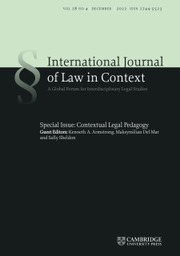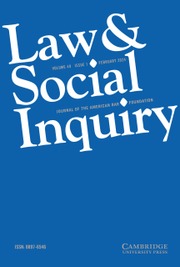Film and Constitutional Controversy
In modern-day Hong Kong, major constitutional controversies have caused people to demonstrate on the streets, immigrate to other countries, occupy major thoroughfares, and even engage in violence. These controversies have such great resonance because they put pressure on a cultural identity made possible by, and inseparable from, the 'One Country, Two Systems' framework. Hong Kong is also a city synonymous with film, ranging from commercial gangster movies to the art cinema of Wong Kar-wai. This book argues that while the importance of constitutional controversies for the process of self-formation may not be readily discernible in court judgments and legislative enactments, it is registered in the diverse modes of expression found in Hong Kong cinema. It contends that film gives form to the ways in which Hong Kong identity is articulated, placed under stress, bolstered, and transformed in light of disputes about the nature and meaning of the city's constitutional documents.
- Demonstrates how a genre as seemingly remote from law as film can further our understanding of constitutional disputes
- Investigates the links between cultural identity and the rule of law in the Hong Kong context, furthering our knowledge of the relationship between law and cultural identity
- Provides historically-grounded and nuanced interpretations of film texts and enables readers to appreciate film from a renewed and renewing perspective
Reviews & endorsements
‘Few books I know of interweave cinema and law as intelligently as Film and Constitutional Controversy in elucidating Hong Kong's post-1997 identity crisis. For anyone concerned with contemporary Hong Kong, China, and the wide-ranging legacies of British colonialism, Marco Wan's informative, judicious account is a must-read. It has so much to tell us about the practical conundrums, allegorical fantasies, and popular affects stemming from this singular historical situation.' Rey Chow, Anne Firor Scott Professor of Literature, Duke University
‘Marco Wan's Film and Constitutional Controversy is a fascinating contribution that makes creative use of the nexus between film, culture, and law to trace Hong Kong's unique historical trajectory. At the same time, Wan draws on Hong Kong's singular relationship to the rule of law to offer fresh insights into how film and law can be mutually illuminating. Michel Rosenfeld, University Professor of Law and Comparative Democracy, Cardozo School of Law, Yeshiva University
‘This is a unique contribution to studies on the cultural identity of Hong Kong society, on its close connection to the rule-of-law tradition, and on its expression in ‘constitutional cinematography’: a group of leading films illustrating how law is built into the very core of culture and identity. It documents the drama of absorption and resistance in the complex landscape of the ‘One Country - Two Systems’ scheme. Wan’s analysis is more relevant today than ever before.’ Lech Garlicki, retired Judge of the European Court of Human Rights and the Constitutional Court of Poland; Professor Emeritus, University of Warsaw; Visiting Professor, Washington University in St. Louis and University of Hong Kong
Product details
February 2021Hardback
9781108495776
300 pages
250 × 176 × 15 mm
0.5kg
Available
Table of Contents
- 1. Love in a Time of Transition: Ng See-yuen's The Unwritten Law
- 2. Laughing at the Law: Johnnie To's Justice, My Foot!
- 3. Women's Rights and Censorship: Andrew Lau's Raped by an Angel
- 4. The Common Law After 1997: Joe Ma's Lawyer, Lawyer
- 5. A Matter of National Security: Tammy Cheung's July
- 6. Choosing the Leader: Chief Executive Elections and Hong Kong Gangster Films
- 7. Scenes From a Traumatic Event: Documenting Occupy Central (with Observations on Cinema and the Anti-Extradition Bill Protests)
- 8. Coda: Wong Kar-wai's 2046
- Bibliography
- Filmography
- Index.

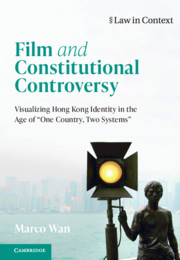
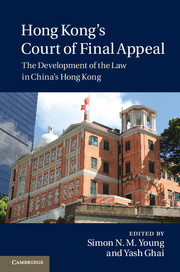
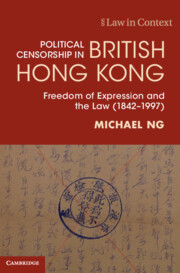
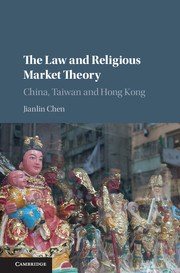

.jpg)
